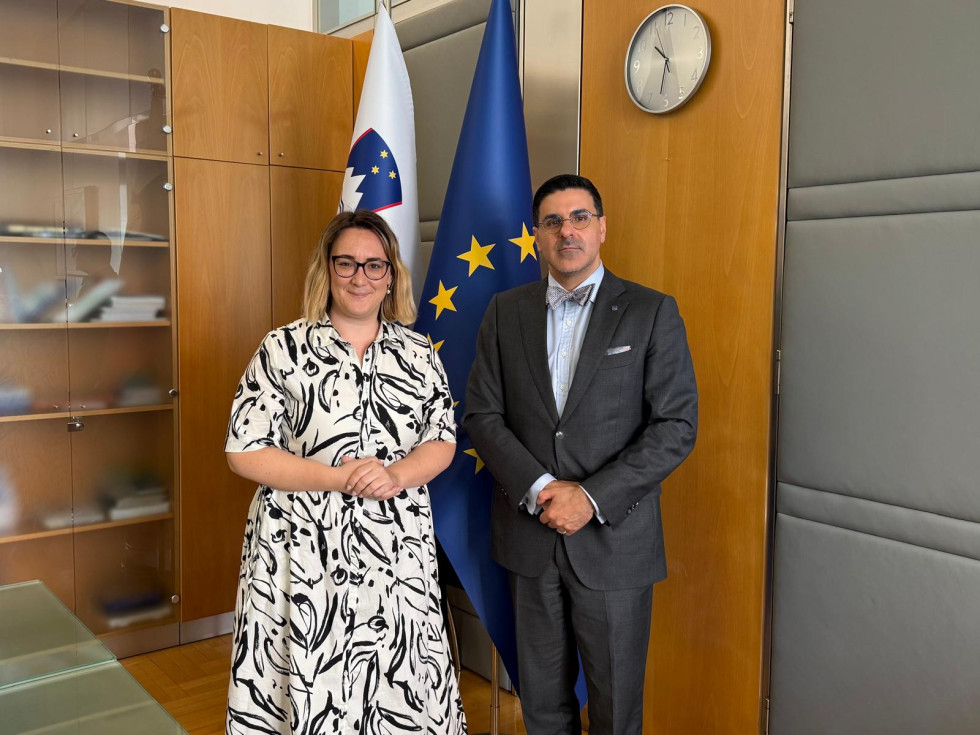State Secretary Grašič confirms support for the fight against impunity and for the ICC

State Secretary Neva Grašič met with Osvaldo Zavala Giler, Registrar of the International Criminal Court (ICC) | Author Ministry of Foreign and European Affairs
The State Secretary reiterated Slovenia’s principled commitment to respecting international law and pursuing justice. She stressed the importance of cooperation between the 125 States Parties to the Rome Statute and other stakeholders to establish and maintain the conditions necessary for the effective implementation of the ICC’s mandate, which is in the interest of the international community. The Court must operate within its legal framework and remain independent of political and other non-legal interests.
She also confirmed that Slovenia, as a State Party to the Rome Statute and a member of the Bureau of the Assembly of States Parties, will remain active in joint efforts at both political and other levels, and in fostering dialogue to seek constructive and effective solutions. She underlined that pressure on the Court, as well as threats and sanctions against its judges and prosecutors elected by the States Parties, are unacceptable. All judges and prosecutors must act in accordance with established legal standards and in an independent, impartial and professional manner in all cases before the ICC.
Registrar Zavala Giler took part in a well-attended panel discussion entitled Law, Power, Self-Interest and Global Challenges, organised as part of the 20th anniversary edition of the Bled Strategic Forum. The panel explored the challenges surrounding the effectiveness of international law, particularly international criminal law, given the limited enforcement mechanisms available. These mechanisms depend on the political will of States, their interests and power dynamics, which often obstruct the consistent and uniform application of international norms. Moreover, some States perceive compliance with international law as a constraint on their autonomy. At the same time, the world is experiencing a significant decline in multilateral cooperation, further complicating efforts to reach consensus on urgent transnational challenges and, in particular, to ensure accountability for international violations that undermine peace and security.

